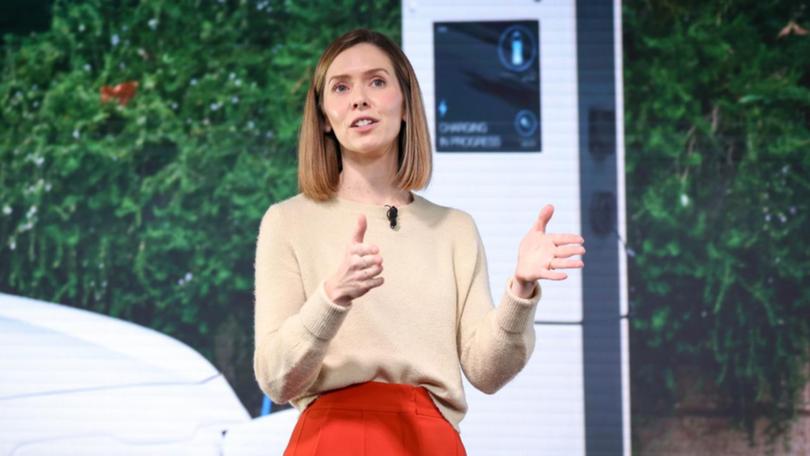‘Where should our investment go’: Price and policy changes redirecting Uber's electric drive fleet

Ride-share giant Uber could ditch discounts given to Australian electric vehicle drivers - that cost the company more than $30 million - to provide greater support for EV charging.
The company has pledged not to back down from its goal of reaching net zero by 2040 despite challenging international economic and political conditions.
Uber electrification and sustainability head Rebecca Tinucci made the comments during a visit to Australia, adding the company would focus more on the country’s transition to electric transport.
Sign up to The Nightly's newsletters.
Get the first look at the digital newspaper, curated daily stories and breaking headlines delivered to your inbox.
By continuing you agree to our Terms and Privacy Policy.Her statements follow a dramatic drop in sales of new electric cars in Australia and significant transport policy changes in the US.
President Donald Trump revoked the US’s 2030 electric car sales target and halted spending on charging infrastructure within one day of taking office and said his administration would consider ending a $US7500 ($A11,800) tax credit on EV purchases.
Cuts to financial incentives in any country made the transition to electric transport more difficult, Ms Tinucci told AAP, and could force Uber to redirect its focus to more supportive markets including Australia.
“I’m not going to sugar-coat it: the job does get harder when you have a large government like the US not leaning in as much but we work with a lot of different governments across the globe,” she said.
“Our electrification ambitions will remain and do remain but we want to be smart about understanding what are the regions where we can lean in and do more, one of which I believe is Australia.”
In addition to discounted car finance options, Uber has delivered electric vehicle drivers on its platform a half-price service fee since 2022 - at a cost of “about $30 million”.
The discount is due to expire on June 30 and Ms Tinucci said the company was weighing up whether to discontinue it to prioritise making it easier or cheaper for drivers to recharge EVs.
“We are starting to see (total cost of ownership) in Australia get closer to parity so the question becomes where should our investment go,” she said.
“I think some of the other puzzle pieces might be a better place for our investment - as an example, charging.”
Widespread access to EV-charging stations would be vital to keeping a large fleet of cars on the road, she said, and could help drivers without access to off-street parking.
There were more than 1800 high-powered EV charging stations across 1059 locations in Australia in 2024, the Electric Vehicle Council says.
On Sunday, the NSW announced it would install extra, strategically placed charging stations every 100km or less along nine iconic routes.
The scenic EV-friendly road trips include the Central Coast to the Hunter Valley, the Southern Highlands to the South Coast and Sydney to the Blue Mountains, which the council welcomed as bringing more tourists into regional communities.
The Australian Renewable Energy Agency also recently announced a $2.4 million investment with Sydney firm EVX Australia to install pole-mounted car chargers in another 250 locations during the next two and a half years.
The measures come as financial incentives to purchase electric cars dwindle, with state governments in NSW, Victoria, South Australia and Queensland ending purchase rebates.
The federal government offers a fringe benefits tax exemption for electric vehicles priced at less than $89,332 and low-interest loans to low and middle-income earners through the Commonwealth Bank.
